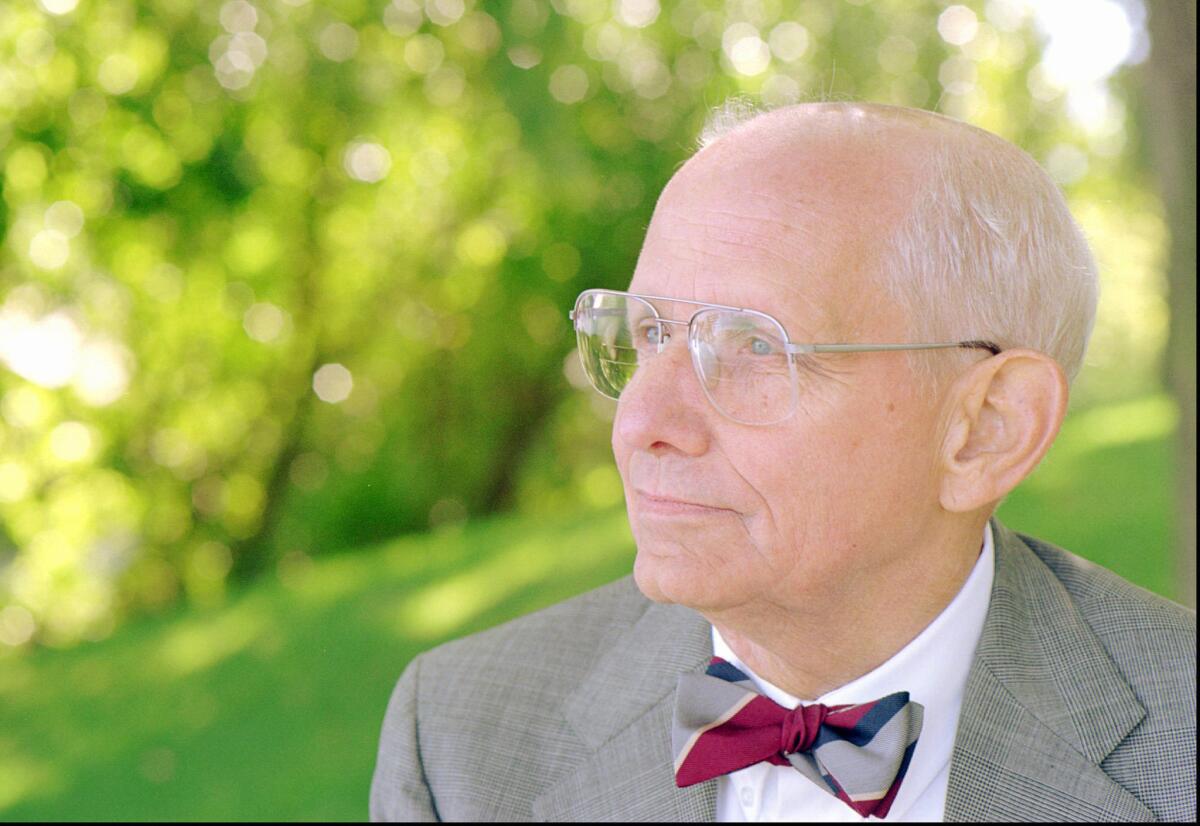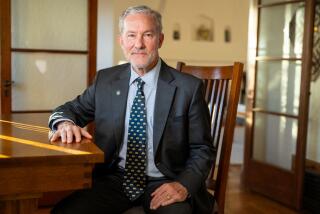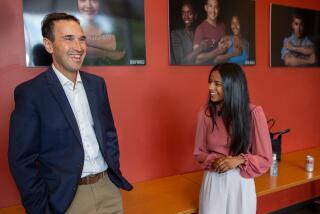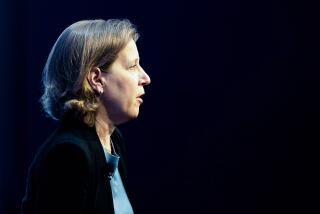Henry Riggs dies at 80; former president of Harvey Mudd and Keck Graduate Institute

Henry E. Riggs, a former president of Harvey Mudd College in Claremont and founding president of the Keck Graduate Institute of Applied Life Sciences, died at 80.
Henry E. Riggs, a former president of Harvey Mudd College in Claremont and founding president of the Keck Graduate Institute of Applied Life Sciences, has died. He was 80.
Riggs, an early electronics executive in what became Silicon Valley, died June 10 at his home in Palo Alto after a brief illness, his son-in-law Andy McCarthy said.
As head of Harvey Mudd and, later, the Keck Graduate Institute, Riggs emphasized development of career skills in science and bioengineering over pure academics.
Opened in 1997, the graduate school was designed to turn out more students with master’s degrees than with doctorates.
“The formation of this institute is in part a response to the cry that the nation’s universities are producing too many Ph.D. scientists these days, and that the training they receive is not well-tuned to the needs of industry,” Riggs told The Times in a 1997 interview.
He said the institute aimed to create “a new generation of bioengineers with leading-edge knowledge and a practical orientation.”
Funded initially with a $50-million grant from the W.M. Keck Foundation, the institute became the seventh school of the Claremont Colleges consortium — a group composed of Harvey Mudd, Claremont McKenna, Pitzer, Pomona, Scripps and the Claremont Graduate University.
------------
FOR THE RECORD
June 22, 4:40 p.m.: An earlier version of this obituary referred to the W.D. Keck Foundation. It is the W.M. Keck Foundation.
------------
A skilled fundraiser, Riggs was a Stanford vice president in the 1980s, although he informally described himself as the university’s “sales manager.” He ran a development office with a staff of 190 and directed what the Associated Press in 1986 described as “the biggest sales drive ever for an American university.”
Under Riggs, the school’s Centennial Campaign succeeded in its goal of raising more than $1 billion.
But Riggs also was a critic of lavish spending and bloated fees at top colleges.
In a 2011 New York Times op-ed piece, he said some colleges boosted their tuition mostly because they could — and not doing so, they feared, would suggest to the public that they weren’t first-rate schools.
He also took on colleges that drew students by offering “merit scholarships,” regardless of their families’ ability to pay the full freight.
In a 1996 essay in the Los Angeles Times, he called the widespread practice “unfair and dangerous.”
“The truth is, that for the vast majority of institutions, a dollar spent on merit scholarships is a dollar that could otherwise be invested in support of the economically deserving student,” he wrote.
Born in Chicago on Feb. 25, 1935, Henry Earle Riggs grew up in Hinsdale, Ill.
In 1957, he graduated from Stanford, where he was a member of Phi Beta Kappa. Three years later, he received an MBA from Harvard.
Early in his career, Riggs worked for the tech companies Icore, in Sunnyvale, and Measurex, in Cupertino. He started teaching at Stanford part time in 1967. Seven years later, he devoted himself to it full time, teaching classes in industrial accounting and engineering management. He took his Stanford development job in 1983, before signing on as Harvey Mudd’s president in 1988.
At his inauguration, the school’s library was festooned with a huge bow tie. Riggs had started wearing bow ties in the 1960s and continued to do so throughout his academic career.
He left Harvey Mudd for the Keck graduate school in 1997 and retired in 2003.
Riggs bought his first boat — a 32-foot cabin-cruiser called “It’s About Time” — at 70. He piloted a round-trip voyage to Alaska when he was 75.
“He was always interested in taking on new challenges,” McCarthy said.
Until just a few weeks before his death, Riggs taught a class on fundraising as part of Stanford’s adult-education program.
His survivors include Gayle, his wife of 57 years; sister Ruth Wendel; children Betsy McCarthy, Peter Riggs, and Katie Riggs; and six grandchildren.
Twitter: @schawkins
More to Read
Start your day right
Sign up for Essential California for the L.A. Times biggest news, features and recommendations in your inbox six days a week.
You may occasionally receive promotional content from the Los Angeles Times.







